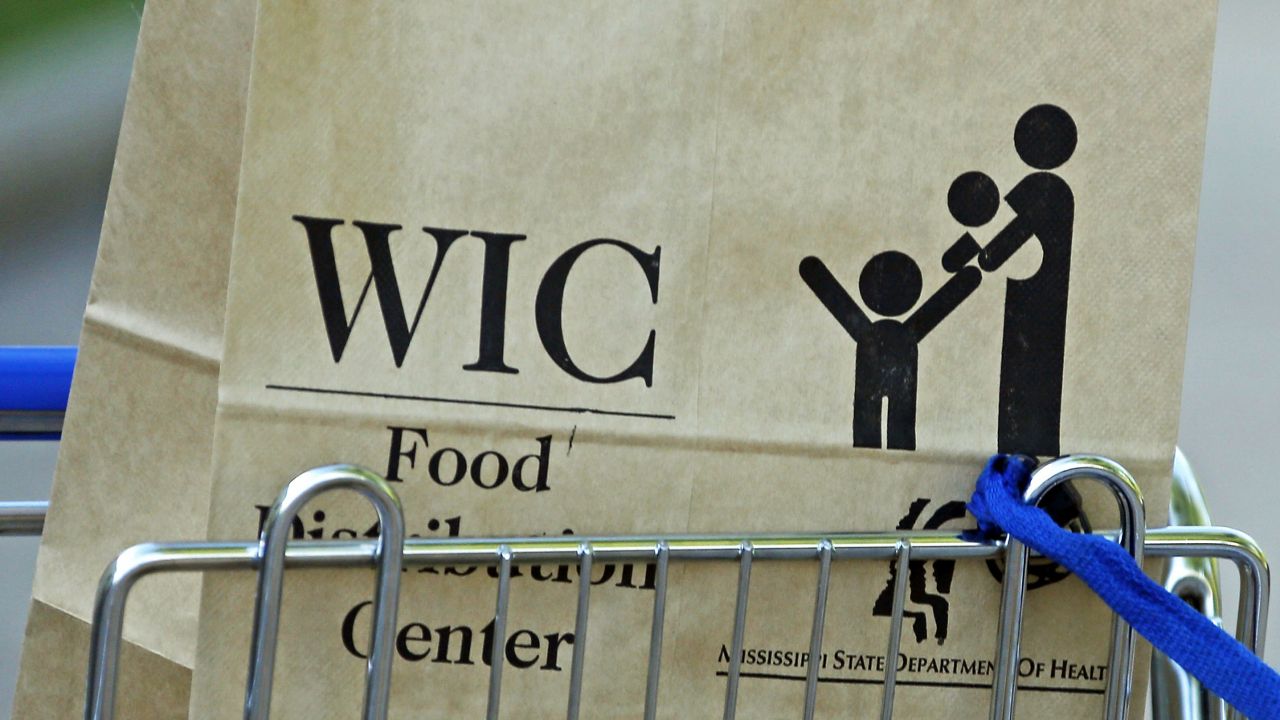The Biden administration on Wednesday implored Congress to ensure funding for the Special Supplemental Nutrition Program for Women, Infants, and Children, or WIC, through the end of the 2024 fiscal year.
What You Need To Know
- The Biden administration on Wednesday implored Congress to ensure funding for the Special Supplemental Nutrition Program for Women, Infants, and Children, or WIC, through the end of the 2024 fiscal year
- WIC grants, which date back to the 1960s, provide food, health care referrals and nutrition education to nearly 7 million low-income pregnant women, new mothers, babies and young children each month
- The Biden administration says it has repeatedly called on Congress to fully fund the program for the fiscal year, but lawmakers have not yet acted
- An analysis published Tuesday by the Center on Budget and Policy Priorities found that, without full funding, 2 million parents and young children could be denied WIC benefits by September
WIC grants, which date back to the 1960s, provide food, health care referrals and nutrition education to nearly 7 million low-income pregnant women, new mothers, babies and young children each month.
The Biden administration says it has repeatedly called on Congress to fully fund the program for the fiscal year, but lawmakers have not yet acted. WIC funding was extended in November as part of Congress’ short-term spending bill but is set to expire Jan. 19.
Congress has allowed the Agriculture Department, which runs the WIC program, to administer current funding to states at a faster pace.
“But what they didn't do is commit to paying for the difference over the course of the whole year,” Deputy Agriculture Secretary Xochitl Torres Small told reporters on a call Wednesday. “And that puts states and moms and kids in jeopardy, forcing them to hold on to hope and a prayer that Congress is going to provide before resources run out.”
An analysis published Tuesday by the Center on Budget and Policy Priorities found that, without full funding, 2 million parents and young children could be denied WIC benefits by September. The program’s funding needs have grown due to higher participation and food costs, the nonpartisan think tank added.
“If congressional Republicans pass the budget without fully funding WIC, states will have no choice but to cut the number of people they serve people,” said Neera Tanden, director of the White House Domestic Policy Council. “ … In a country as wealthy as ours, there is no reason states should be forced to implement waiting lists or take other devastating measures and really not cover the people who need it.”
President Joe Biden initially requested $6.3 billion for the program in the 2024 fiscal year, but his administration has since asked for an additional $1 billion to account for the higher projected costs.
There traditionally has been bipartisan support for WIC. However, House Republicans have proposed reducing funding for the program to $5.5 billion and cutting back the enhanced fruits and vegetables benefit initially authorized by the 2021 American Rescue Plan Act.
In June, Rep. Andy Harris, R-Md., chairman of the House Appropriations Committee, said cuts were needed to return the WIC program closer to the level it was at before new benefits were added during the COVID-19 pandemic.
“With the end of the public health emergency, it’s time to return this program to normal operations,” he said.
Torres Small said that the constant uncertainty about WIC funding is a challenge for mothers.
“That's why it's crucial that Congress provide additional funding for WIC in January,” she said. “The longer Congress puts off this funding, there’s a greater risk to mothers, to babies and children who just want the healthy food they need to succeed.”
WIC participation increases the likelihood of a healthy pregnancy and gives children a better start in life by ensuring they are fed nutritious food, including fruits and vegetables, officials say. Studies have found the program also helps improve a child’s educational prospects.
WIC serves nearly 40% of all babies born in the United States, Biden administration officials said.



